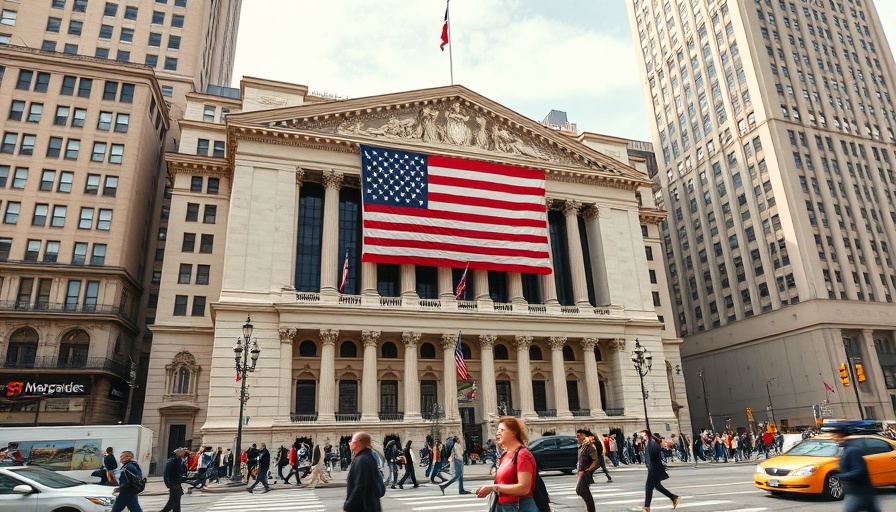
Trump's Impact on Wall Street and 'US Exceptionalism'
As Donald Trump navigates through his presidential term, his policies are fundamentally reshaping Wall Street's long-standing belief in 'US exceptionalism'—the idea that America holds an unassailable position in global finance and trade. With his administration's approach marked by protectionism and nationalistic policies, investors are beginning to rethink the traditional metrics and strategies that have defined the American economy.
Understanding 'US Exceptionalism'
The term 'US exceptionalism' encompasses the belief that the United States occupies a unique global position, particularly regarding its economic prowess and influential financial markets. For years, this belief drove confident investment strategies, as Wall Street assumed that American companies would consistently outperform due to factors such as robust consumer spending, innovative entrepreneurship, and a supportive regulatory environment. However, with increasing trade tensions and regulatory uncertainties under Trump's administration, this belief is being challenged.
The Shift in Investor Sentiment
Investors are increasingly cautious as they witness a shift in the landscape of US business leadership. Many venture capital firms, once bullish on Silicon Valley startups, are now grappling with changes in business regulations and the unpredictability of trade policies. The atmosphere of unpredictability, characterized by tariff wars and anti-globalization rhetoric, is prompting a re-evaluation of risk assessments related to investments in both industrial sectors and startup ecosystems across the Bay Area.
Corporate Earnings and Mergers
The Trump administration’s policies are creating ripples through corporate earnings reports and mergers and acquisitions (M&A) activity. As companies brace for higher tariffs and increased scrutiny on foreign investments, the mergers landscape is evolving. Notably, industries reliant on international supply chains are urging caution in bold M&A pursuits. This low-risk appetite can inhibit business growth strategies, stifling innovation and competitive advantage in a global market.
What This Means for Silicon Valley
Silicon Valley, often hailed as a beacon of innovation, is feeling the repercussions of shifting investor confidence. The environment of uncertainty may affect venture capital funding rounds, pushing startups to adapt their business plans and strategies to fit this new paradigm. They are focusing on resilience, agile responding to market changes, and aligning more closely with local business trends.
Future Predictions and Emerging Trends
Please be aware that the continuously changing political landscape leads financial analysts to speculate on potential repercussions. Forecasts demonstrate that as America’s foreign relations and trade policies evolve, so too will the shape of industries within the Bay Area and nationwide. Emerging trends hint that sectors emphasizing sustainability, digital transformation, and technology innovation will be pivotal, perhaps even dictating where venture capital chooses to invest moving forward.
Unique Benefits of Staying Informed
For investors and entrepreneurs in the Bay Area, understanding these shifts is crucial. Knowledge equips them with a framework to navigate uncertainties and identify unique opportunities arising from evolving economic realities. Our need to adapt and innovate in response to these challenges can lead to increased business resilience and a stronger foothold in an uncertain market.
Take Action: Stay Ahead of Business Trends
In this fast-evolving landscape influenced by political and economic shifts, staying informed remains an essential component for success. Bay Area entrepreneurs and stakeholders need to keep vigilance on market and industry news, whether tracking local business updates or international trends. Read industry news to adapt strategies quickly to thrive amidst changes, seizing opportunities as they arise.
 Add Row
Add Row  Add
Add 



Write A Comment